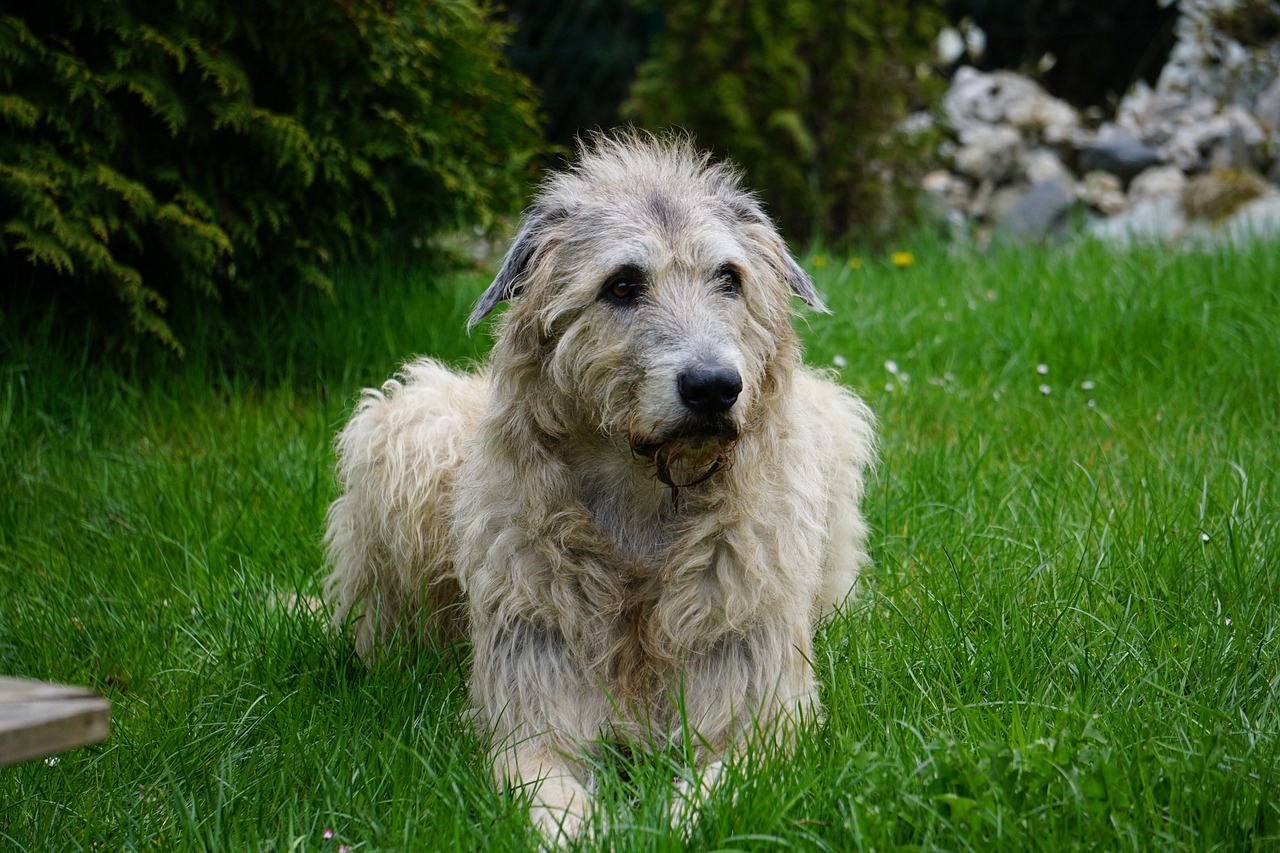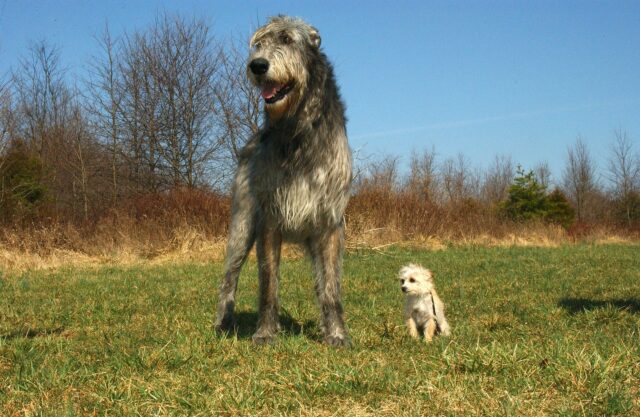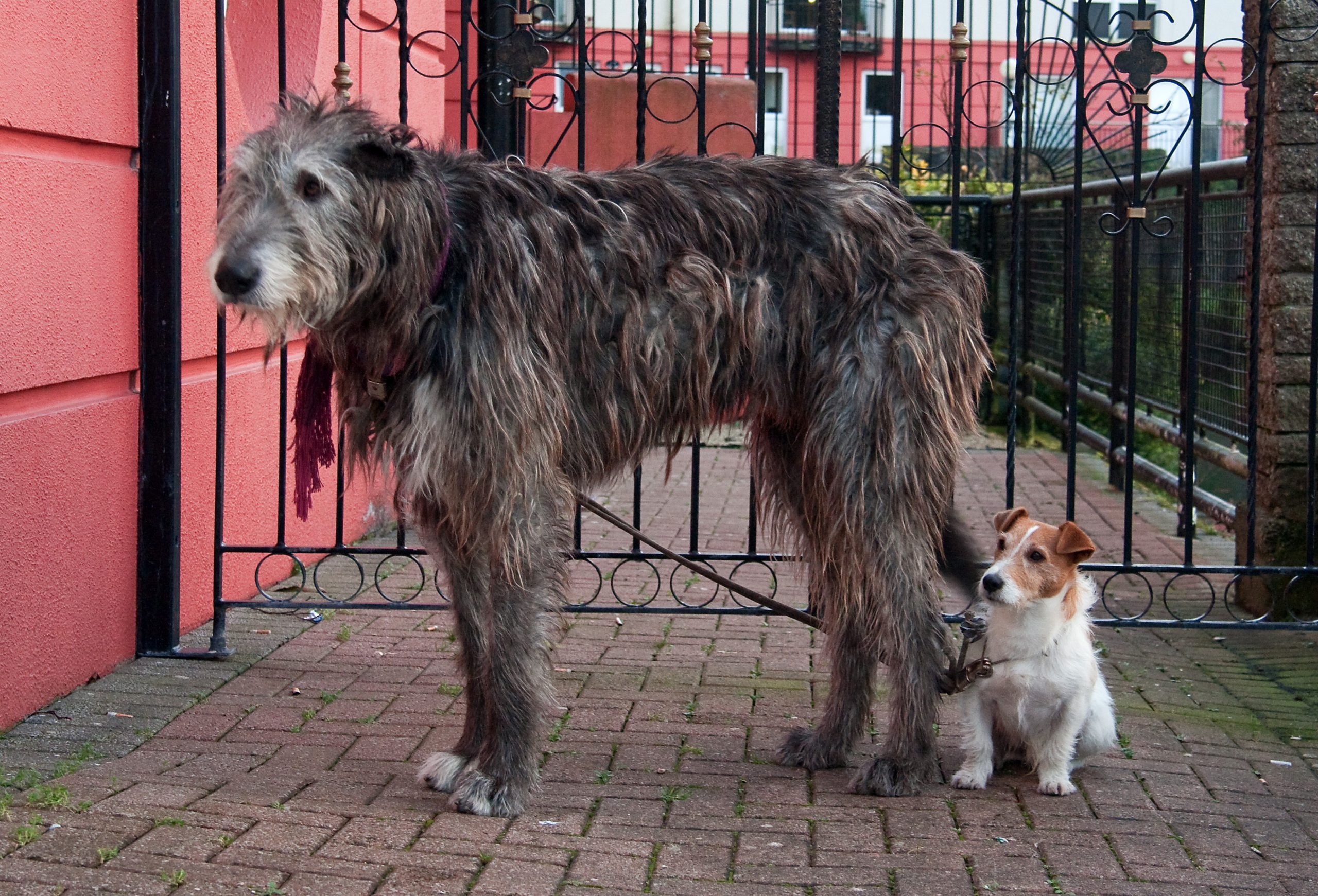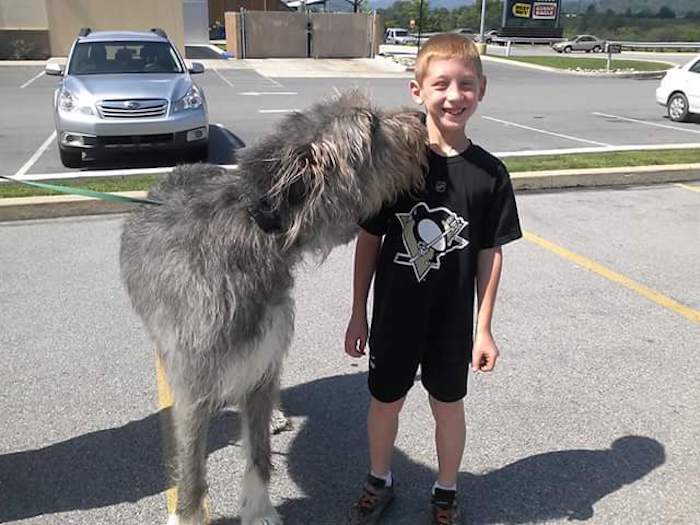Irish Wolfhound
No products found which match your selection.
Shelter Dog Meal Donation Count:
No products found which match your selection.
The Irish Wolfhound, known for its remarkable size and gentle demeanor, is a breed that combines strength with softness. Despite their imposing appearance, they are known as gentle giants, cherished for their patience, loyalty, and affectionate nature. They make excellent family pets for those with the space to accommodate them and the time to invest in their exercise and social needs. Their calm temperament makes them well-suited to a variety of living situations, provided they can stretch their legs and enjoy the companionship they crave. With proper care, including managing potential health issues, the Irish Wolfhound can be a loving addition to the right home, offering unparalleled loyalty and friendship.
Irish Wolfhounds are known for their strength, speed, and keen sight. They are one of the most ancient dog breeds, with a history that dates back to antiquity.

Initially bred in Ireland for hunting wolves and elk, Irish Wolfhounds have a storied history as hunters, war dogs, and noble companions. Their prowess in hunting large game is legendary, hence their name.




Prone to heart disease, bone cancer, bloat (gastric torsion), and hip dysplasia. Regular veterinary check-ups and screenings for these conditions are important.
Their rough, wiry coat requires regular brushing to prevent matting. Occasional grooming is needed to maintain coat health and appearance.
Moderate exercise needs; requires daily walks and space for movement. Due to their size, exercise should be managed to prevent joint stress.
Irish Wolfhound are intelligent and capable of learning quickly, though they can show independence. Patient and consistent training methods are the most effective. Early socialization is crucial for a well-adjusted temperament.
Requires a diet appropriate for a giant breed with moderate energy levels. Monitoring meal portions and schedules is crucial, mainly to prevent bloat.
Caring for an Irish Wolfhound involves understanding their unique physical and temperamental needs. They thrive in environments where they can have space to move comfortably and be part of the family. Irish Wolfhounds can be calm and loyal companions with proper care, including regular veterinary visits, appropriate nutrition, and sufficient exercise.
The Irish Wolfhound, known for its impressive size and gentle nature, is a generally robust breed but, like all large breeds, is predisposed to specific health issues. Awareness of these conditions and conducting recommended tests can help maintain their health.
Understanding these common health issues and adhering to the recommended tests and preventive care guidelines can help ensure an Irish Wolfhound's long, healthy life. Regular collaboration with your veterinarian is critical to developing a healthcare plan tailored to your dog's needs.
The iHeartDogs Free Rx Discount Card Program is a pet prescription discount card that can help you save money on your furry friend’s medications. The card is free to sign up for, and you can use it at participating pharmacies nationwide. To use the free program, simply show the card to your pharmacist when you pick up your pet’s prescription. The pharmacist will then scan the card, and you will receive a discount on the price of the medication.LEARN MORE
Caring for an Irish Wolfhound, one of the most giant dog breeds, involves a range of expenses. These can vary based on location, the dog’s age, health, and personal care choices. Here’s a breakdown of typical expenses:
Total Estimated Annual Cost:
$3750 - $6000.3
It's important to note that these figures are estimates and can vary. Also, the first year of owning a dog can be more expensive due to one-time costs like spaying/neutering, initial vaccinations, and training. Regular budgeting for your dog's needs and an emergency fund for unforeseen costs are essential for responsible pet ownership.